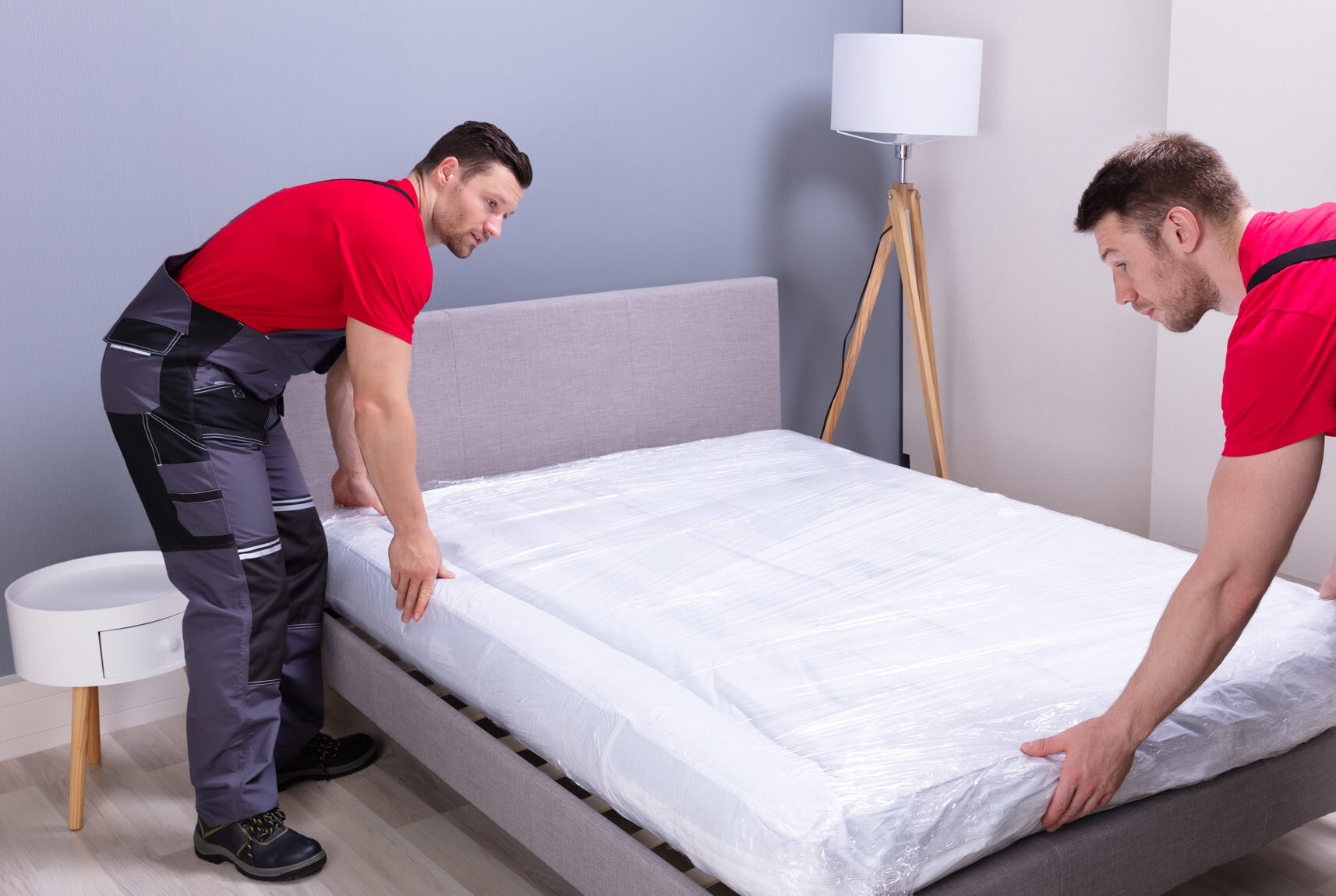Home Mattress Recycling
Need to recycle your old mattress?
Our sister company, The Mattress Recycling People, can take care of it!

With nearly a third (30%) of consumers’ purchasing decisions influenced by a company’s environmental actions1, there’s never been a more important time for businesses to consider their sustainability strategy.
A lack of focus on sustainability could see businesses alienate a substantial number of potential and retained customers, finding themselves without demand for products.
Here, Nick Oettinger, founder and CEO of The Furniture Recycling Group, discusses what manufacturers and retailers can do to take responsibility for implementing more sustainability practices, and how mattresses fit into the circular economy.
Sustainable business practices are where businesses focus their efforts or actively introduce initiatives that reduce their negative impact on the environment. This can be implemented anywhere from the manufacturing process, to how products can be disposed of when reaching end of life.
One key sustainability target most businesses should already be aware of is achieving net zero carbon by 2050. As part of the UN Paris Agreement, we must all work together to cut and offset greenhouse gas emissions by 50% by 2030, with the aim of becoming net zero by 2050.
Net zero refers to the balance of the greenhouse gas emissions that go into the atmosphere versus those that are removed from the atmosphere through positive actions such as investing in sustainable practices. When a business reduces by as much as they produce, they have achieved net zero.
There are several ways manufacturers can achieve sustainable business practices.
Businesses can use the Greenhouse Gas Protocol to assess their carbon emissions, with three different scopes.
Scope 1 covers direct emissions from a business’ owned or controlled sources. This could include fuel combustion in boilers, furnaces, company vehicles, and fugitive emissions.
Scope 2 emissions are those which are indirect, such as from the purchase or consumption of electricity, steam, heat or cooling.
Scope 3 are emissions not included in Scope 1 and 2, but are indirectly a part of a business’ value chain. They are not owned, controlled, purchased or consumed by the business, which makes them hard to identify.
Scope 3 emissions are responsible for 90% of all emissions, and can include purchased goods and services, business travel, employee commuting, waste disposal, use of sold products, transportation and distribution (up- and downstream), investments and leased assets and franchises.
There are many ways manufacturers can reduce their carbon emissions against all scopes.
Scope 1 emissions are the easiest to reduce as they originate from a business’ own or controlled sources. Businesses can start by upgrading to new company vehicles or retrofitting their current stock for a low-emission alternative. This would reduce fuel combustion emissions.
For offsetting indirect scope 2 emissions, businesses should swap their electricity, steam, heat, or cooling sources for a low-emission alternative. By swapping to renewable energy, such as wind, solar, nuclear or hydro power, businesses can become more energy efficient and make carbon reductions.
To tackle scope 3 emissions, businesses need to look at their wider sustainability strategy. Set realistic but meaningful targets and ensure everyone involved in the business, from employees to suppliers, is aware of these. Businesses can use the Science Based Targets initiative to help set these.
To be truly sustainable, products should be designed to be recyclable, which means they can be recycled or repurposed over and over again, once they reach the end of their useful life.
Using recycled materials is no longer enough, as while it may have been recycled once, it doesn’t mean it can necessarily be recycled again.
There are numerous benefits businesses can reap by having sustainability practices in place.
Research from Deloitte revealed that nearly 1 in 3 consumers would stop purchasing from a brand if they didn’t focus on ethical or sustainability within their business practice2.
By implementing sustainable business practices, businesses will benefit from increased consumer trust, resulting in a positive brand image and reputation.
Customers who proactively seek out ethical brands to purchase from are generally brand loyal, and will help generate positive word of mouth about your business, both from a sustainability point of view and in terms of your product or service offering. These positive brand interactions result in returning customers, which are a huge positive on a business’ bottom line.
The trickle down effect is your suppliers will want to capitalise on your brand reputation and continue to work with your business, to enhance their own brand image.
Happier customers and suppliers makes for a thriving business, ensuring happy stakeholders too.
Your employees are the most effective ambassadors you have alongside your customers, and play a vital role in being an advocate for your brand.
By positioning your business as sustainable and taking action, you’ll not only retain a family of loyal employees, but it will also support you with the attraction of future employees to the business.
Engaged employees mean enhanced productivity to maximise returns.
Businesses looking to attract investment shouldn’t overlook the power of sustainable business practices. Increasingly, investors are looking for businesses that demonstrate ESG practices within their business model. Nearly two thirds (65%) of private investors consider ESG factors when deciding whether to invest in a business3.
Lastly, but by no means least, by having a positive business reputation among consumers and suppliers, and engaged employees increasing productivity and efficiencies, businesses will enjoy an increase in profits.
The Furniture Recycling Group is proud to work with manufacturers and retailers to support them with implementing sustainable practices in place and working together to achieve a circular economy. We’ve done it for the likes of John Lewis, Simba and eve sleep.
Find out more about our circular economy & sustainable business practices work here.
References
"*" indicates required fields
Need to recycle your old mattress?
Our sister company, The Mattress Recycling People, can take care of it!
X